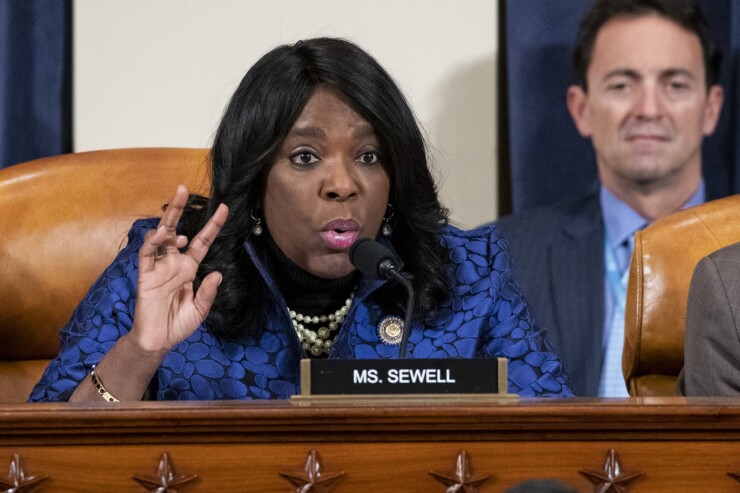
The size of the Internal Revenue Service's budget is under fire from Congressional Republicans once more, with a direct impact on how the agency interacts with municipal market participants.
Republicans and Democrats on opposite sides of the issue sparred during a House Ways and Means Oversight subcommittee hearing Tuesday. The Biden administration fattened the IRS budget with an $80 billion infusion via the Inflation Reduction Act, with $45.6 billion earmarked for a boost in enforcement. A Republican-controlled House has been chipping away at the increase ever since.
"Now that we're 30 plus months in, we have data from the IRS, when 31% of the phone calls during tax season are actually being answered," said subcommittee Chairman David Schweikert, R- Ariz. "Is that the solution? An army of more bodies in the same environment where, when they had even the resources, they were not able to hire?"
"They have rescinded over $20 billion in enforcement funds, and they have frozen another $20 billion in the previous continuing resolution," said Terri Sewell, D – Ala., the subcommittee's ranking Democrat.
"We need to fix this issue. Slashing funds is not the solution. The IRA funding is not an endless piggy bank for the majority."
On the front lines of bond audits, some tax attorneys see audit levels tied to budget moves.
"Audit activity is not constant and definitely ebbs and flows with the IRS budget," said Rich Moore, a partner at Orrick.
"Over the past couple of years, there has been a rise in audits. This follows about a half decade or more of steady decline. Every issuer should be aware that, if it issues a long-term bond, it likely will be outstanding during one or more periods of high audit activity."
Opening statements from committee leadership also pulled the discussions into the current controversies happening in several government agencies.
"I would be remiss if I did not mention the elephant in the room, which is, of course, this faux department of government efficiency, or DOGE, and it's unlawful access of the taxpayer sensitive payment systems and confidential taxpayer information," said Sewell.
"DOGE's takeover of the federal payment system is an egregious invasion of the privacy of every American, especially every American taxpayer."
The effectiveness of DOGE's ability to find and remove waste, fraud, and abuse will come into clearer focus as the budget reconciliation process heats up.
"On the political football front, one can only appreciate the level of hypocrisy of paying lip service to caring about the level of national debt and deficit while at the same time proposing to trim the ranks of tax enforcement professionals and investigators," said Edwin Oswald, a partner with Orrick.
What's happening inside the agency itself remains cloudy. "My impression is that current government employees are reluctant to speak out as they sift through early retirement e-mails, union communications and the latest court cases," said Oswald.
The hearing also questioned the validity of budget scoring from the Congressional Budget Office and explored technology solutions offered by the private sector that could supplement the agency's operation with artificial intelligence.





